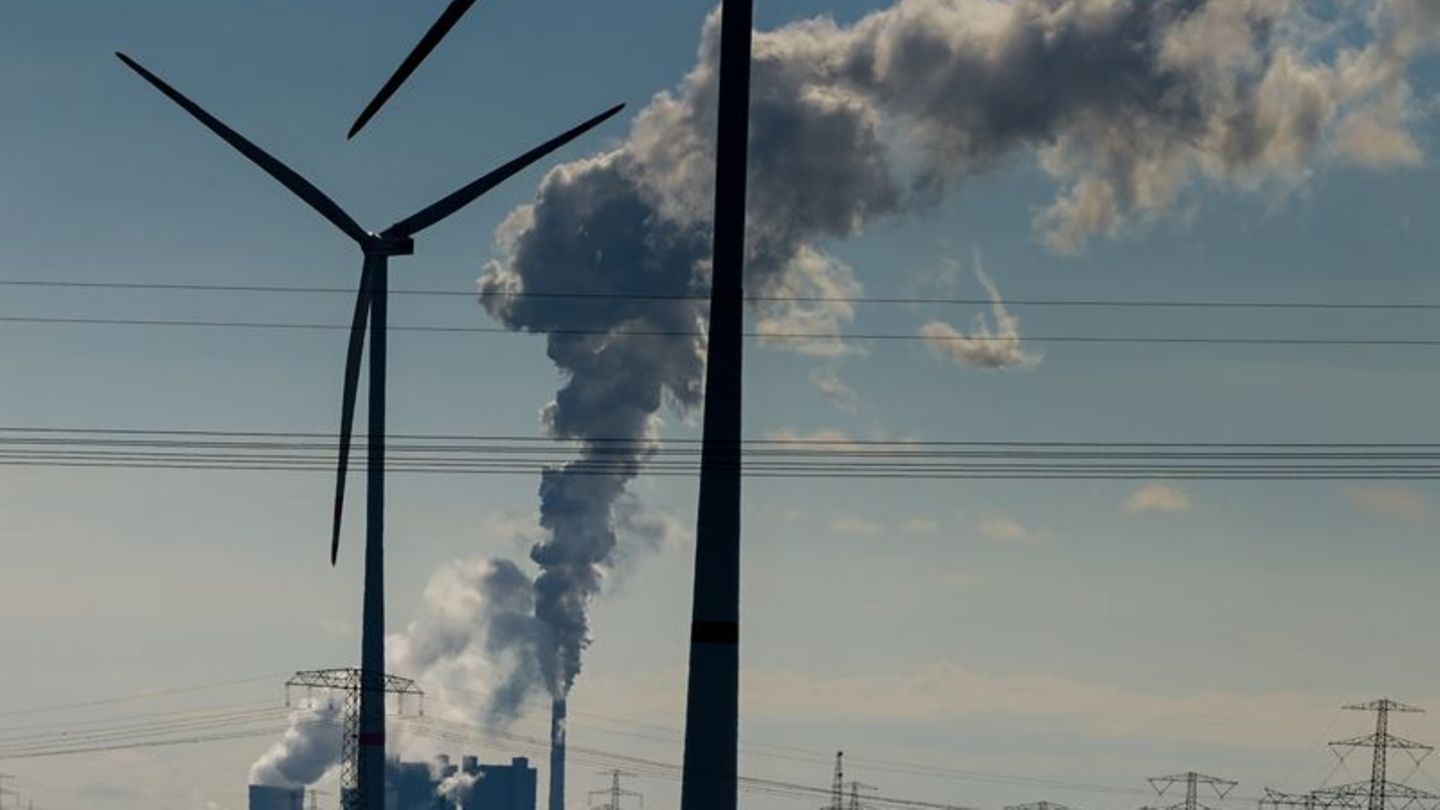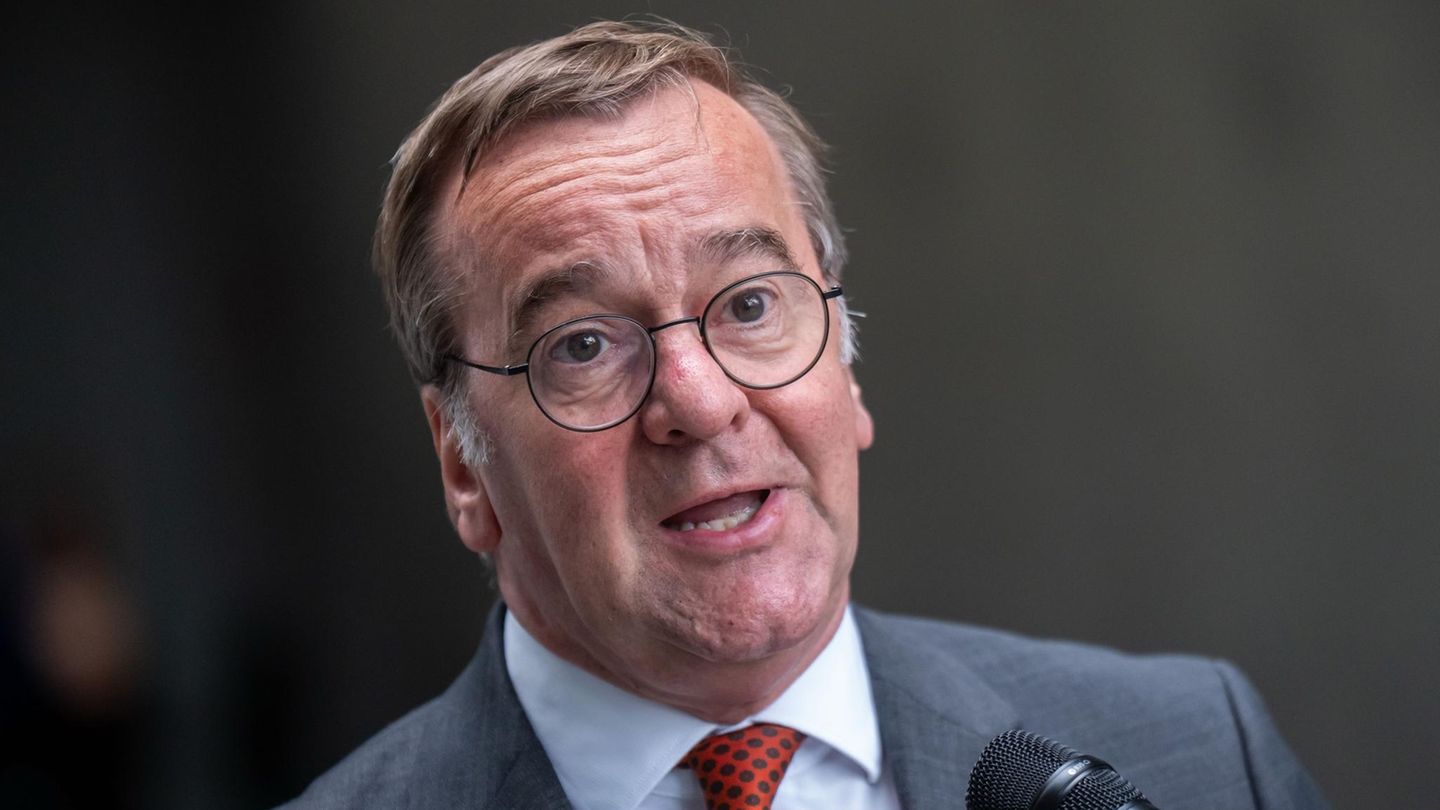The farewell was still in the balance. But the Bundestag has now passed changes to the Climate Protection Act. The opposition sees a softening.
The Bundestag has passed a controversial reform of the Climate Protection Act. This came about primarily at the request of the FDP. The essence of the matter is that individual ministries such as the transport department no longer have to submit immediate programs if, in retrospect, legal requirements for CO2 emissions have been missed. In the future, the federal government as a whole should take countermeasures – if there are foreseeable difficulties in achieving climate goals in the future. Critics complain that the reform is a watering down. The law still has to pass the Federal Council.
New mechanism
An application by CDU MP Thomas Heilmann against the adoption had failed at the Federal Constitutional Court the evening before. Heilmann justified the step with an “extremely shortened consultation time” and also with a feared weakening of climate protection.
The law contains binding climate targets. By 2030, Germany must reduce its greenhouse gas emissions by at least 65 percent compared to 1990. Greenhouse gases are expected to fall by 88 percent by 2040 and greenhouse gas neutrality should be achieved by 2045 – so no more greenhouse gases will be emitted or sequestered again.
So far, if individual sectors such as transport or buildings fail to meet the carbon dioxide emission targets, the responsible ministries must submit emergency programs the following year.
Last year, the traffic and building sectors failed to meet the requirements. Transport Minister Volker Wissing (FDP) had threatened to take drastic measures, including driving bans on weekends, if the Bundestag did not decide on the reform of the Climate Protection Act by summer – then Wissing would have had to present an immediate program so that the transport sector met climate targets.
With the reform, compliance with climate targets should no longer be checked retroactively by sector – but rather looking into the future, over a period of several years and across sectors. What is crucial is that climate goals are achieved overall. If, for example, too much CO2 is emitted in traffic, this can be compensated for by greater savings, for example in electricity generation. If it becomes apparent in two consecutive years that the federal government is not on track to meet its climate target for 2030, it will have to make adjustments. The Greens emphasized that the new climate protection law obliges the federal government for the first time to put in place concrete climate protection measures for the period from 2030 to 2040.
Traffic light coalition: Not a gram of CO2 is emitted anymore
FDP leader and Finance Minister Christian Lindner wrote on the X platform (formerly Twitter) that the planned economy approach of the old climate protection law was history. With a long-term, overarching goal perspective, “harsh restrictions on freedom” would be prevented. FDP parliamentary group leader Christian Dürr said that the climate doesn’t care at all whether emissions are saved in the energy, industrial or transport sectors.
The Green Party parliamentary group leader Katharina Dröge said: “The climate protection law looks forward in the future.” The emissions targets remained. “Not a single gram of CO2 may be emitted in the future.” However, Dröge admitted that the Greens would have liked the individual sectors to have even clearer responsibility. There were dissenters among the Greens: transport politician Stefan Gelbhaar explained that he had voted against the law. The change sends the wrong message to the Ministry of Transport and also to the entire transport sector.
Broad criticism of reform
Environmental groups in particular have long been criticizing the weakening of the law. The transport sector in particular will be released from the obligation to take effective measures for more climate protection.
The CDU energy politician Andreas Jung spoke of a gutting of the climate protection law and a step backwards for climate protection. The traffic light gives itself carte blanche. CSU MP Anja Weisgerber spoke of a “black day” for climate protection. She pointed out that the Berlin-Brandenburg Higher Administrative Court had condemned the federal government to launch immediate programs for more climate protection in transport and buildings. The coalition is shirking this obligation. The federal government has appealed against the judgment.
The left-wing politician Bernd Riexinger said that the federal government was accepting European fines because an EU regulation on burden sharing continued to require compliance with sector goals. These fines could amount to billions. SPD parliamentary group vice-president Matthias Miersch said with regard to the EU regulation that the transport and building sectors in particular still had to achieve reduction targets.
Source: Stern
I have been working in the news industry for over 6 years, first as a reporter and now as an editor. I have covered politics extensively, and my work has appeared in major newspapers and online news outlets around the world. In addition to my writing, I also contribute regularly to 24 Hours World.




